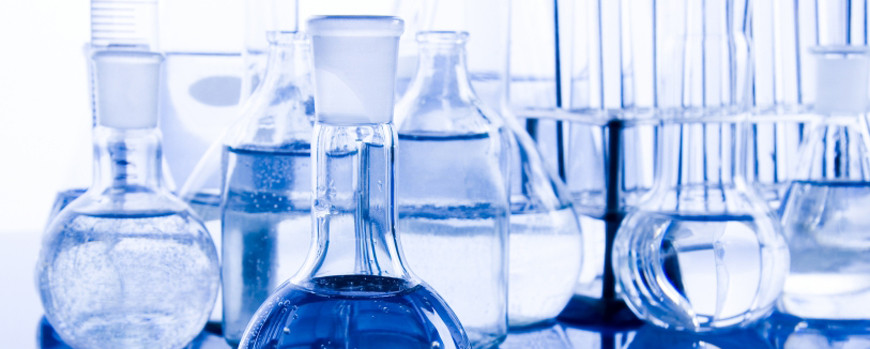Polymer Science | Master

These days, many functional materials and much technical equipment are composed in large part of polymers. In 1999 the University of Potsdam and three of the Berlin universities (Free University, Humboldt University, and Technical University) decided to do justice to the growing importance of polymers in science and daily life and have launched a joint English-language, interdisciplinary, and research-oriented Master’s degree program in Polymer Science.
| Name | Polymer Science |
| Degree | Master of Science |
| Standard period of study | 4 semesters |
| Credit points | 120 |
| Language of instruction | English |
| Start of program (1st semester) | Summer and winter semester |
| Entrance requirements | Applications are accepted year-round by the Free University Berlin |
| Campus | University of Potsdam: Golm; HU Berlin, FU Berlin und TU Berlin |
Program Contents
Science and industry today have a very broad range of demands. To meet these requirements, the Master’s Program Polymer Science offers you interdisciplinary training in chemistry, physics, and material science. These different subjects are offered by instructors at the four participating universities (University of Potsdam, Free University Berlin, Humboldt University Berlin, and Technical University Berlin) so that you can develop a sufficiently deep understanding of the individual subject areas.
Laboratory internships allow you to explore a number of current research topics. The physical, chemical, and technical foundations are taught using examples from polymer research.
Course Objective and Future Career Options
The Master’s Program in Polymer Science is research-oriented and taught entirely in English. You will acquire the skills needed to apply scientific methods and findings to produce and interpret research results, and you will learn how to communicate these results to others. Apart from this general qualification that is necessary for all areas of polymer science, this program offers you the opportunity to specialize in one of the subject areas of polymer physics, chemistry, or technology, thus sufficiently covering the variety of scientific and economic activities in this area.
This Master’s Program prepares you for a career in a scientific or industrial polymer-related field. Possible career opportunities range from research and development to production to consulting and administrative occupations.
Prerequisites for Admission to the Master’s Program
The general prerequisite for enrolling in a Master’s program is a first academic degree that qualifies you for a profession, e.g., a Bachelor’s degree. For the Master’s in Polymer Science, you will need a Bachelor of Science degree, preferably in one of the natural sciences.
In addition, you must demonstrate good knowledge of English, which must be demonstrated with a minimum IELTS score of 6.5 out of 9 points or a minimum TOEFL score of 510 points out of 677 total/ 225 of 300 total/ 90 of 120 total, respectively.
You can learn more about the subject-specific admission requirements in the respective Admission Regulations.
Program Structure
During the four semesters of the program you will earn a total of 120 credit points (CP) from the following modules and your final thesis. For additional information, please consult the subject-specific Degree Regulations or the Departmental Advisory Office.
Modules | Credit Points |
|---|---|
| Free University Berlin | 15 CP |
| Introduction to Macromolecular Chemistry | 5 CP |
| Advanced Macromolecular Chemistry | 5 CP |
| Polymer Synthesis and Characterization Laboratory | 5 CP |
| Humboldt University Berlin | 15 CP |
| Polymer Characterization | 10 CP |
| Introduction to Polymer Theory | 5 CP |
| Technical University Berlin | 15 CP |
| Polymer Materials and Technologies | 9 CP |
| Physical Chemistry of Polymeric Materials | 6 CP |
| University of Potsdam | 15 CP |
| Advanced Polymers and Nanomaterials | 6 CP |
| Functional Polymers and Nanomaterials Lab | 9 CP |
| Specialization with elective modules | 30 CP |
| Elective Modules from chemistry, physics and engineering science | 15 CP |
| Elective Modules from Research Projects | 15 CP |
| Master's Thesis and Defense | 30 CP |
| Total | 120 CP |
Advantages at a Glance
Our close relations to extramural research institutions, such as the Max Planck Institute of Colloids and Interfaces, the Fraunhofer Institute for Applied Polymer Research at the Science Park Golm as well as the Helmholtz Society’s institutes, allow you to establish contacts with leading international research groups and companies. Developing these contacts at such an early stage will prove invaluable for your future career.
The four participating universities offer state-of-the-art facilities and equipment as well as excellent advising through a mentoring program in your first year of study. After the successful completion of your Master’s Degree, you will receive a joint diploma from all four participating universities.
Application
Have you decided for a Master's Program in Polymer Science? Then you should take the next step on the application pages to find out more about current application and enrollment procedures.
Contact
Institute of Physics and Astronomy
Prof. Dr. Dieter Neher | Departmental Advising
Important Links
This description is based in part on the information provided by the Program-Specific Regulation for the Master's Program Polymer Science (AmBek No. 26/24, p. 1042).

